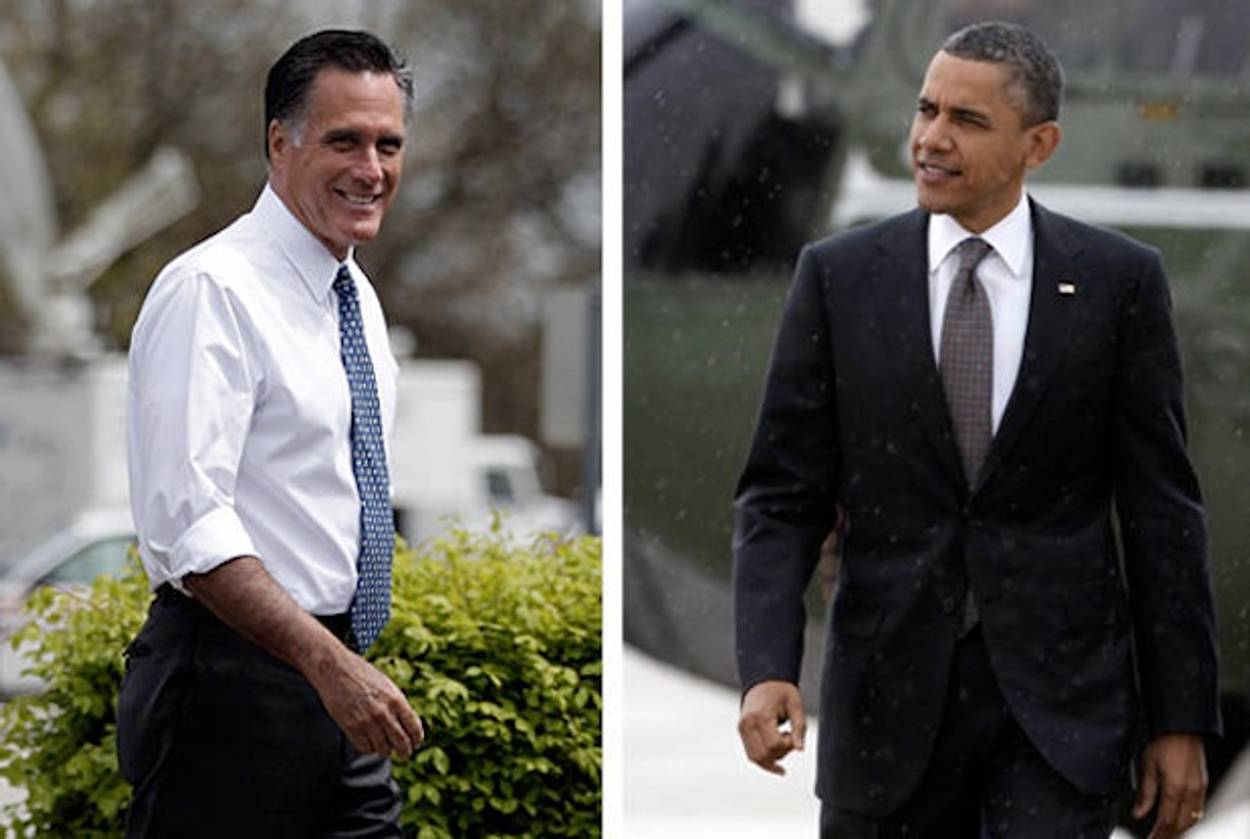Time to Reinvest in the Peace Process
Israel’s long-term health is also imperiled




In the past few days, a number of pieces have popped up pushing against the current status of the American/Israeli relationship. Thomas Friedman lamented the Republican success at making Israel a wedge issue for voters, which has stifled debate. Avram Berg got righteously heated about the dangerous intertwining of church and state in Israel and how it now limits its partnership with the United States.
And Palestinian billionaire Munib Masri, along with a lot of vitriol, also had this to say:
American Jews like to split hairs over which candidate is more pro-Israel or who better represents their interests: Is Mr. Obama’s facial expression lacking? Is that omitted adjective by Mr. Romney significant? But ask 9 out of 10 Palestinians and you will get an identical response: “There is no difference between Obama and Romney.”
From an American, an Israeli, and a Palestinian, there is a refrain that may seem familiar: the indistinguishable nature of President Obama and Governor Romney’s positions on Israel. While the Romney campaign has sought to portray the governor as being Israel’s truer love, there’s not much on which to draw a material policy distinction–just some vague talk about the hardly groundbreaking ’67 borders, normal candidate-speak on Jerusalem (both candidates Bush and Obama said Jerusalem was the capital too), and some chiropractic rhetoric about Obama’s posture.
This is not to credit President Obama and Governor Romney, although it is obviously a good thing that the two presidential candidates stand strongly in favor of close ties with Israel and appear committed to stopping Iran. The problem is that the focus on Iran has completely effaced Arab-Israeli peace from the agenda of the candidates and the American discourse on the Middle East. Last month, when Secretary of State Hillary Clinton–the face of American foreign affairs efforts–visited the region, she urged Israelis and Palestinians to return to negotiations, but gave the specifics and the urgency of the issue passing lip service, it having been relegated to the second tier of the diplomatic agenda.
Governor Romney’s visit to Israel last week was equally empty of aspirational talk about peace, his policy speech did not include the word Palestinian in it once. To boot, Romney’s perfunctory visit with Palestinian Prime Minister Salam Fayyad certainly didn’t do any favors for Fayyad–whom we should want to see succeed–and Romney’s remarks at his million-dollar fundraiser…well, let’s just say he wasn’t lacing the invitation to any future U.S.-brokered peace negotiations with any perfume on that one.
In the meantime, settler leaders in the West Bank–with no particularly warm feelings about a democratic Israel–are declaring victory. Israel is tumbling toward a suicidal one-state reality and there aren’t any mechanisms in place to tell the settlers that they are just being delusional. Israeli Prime Minister Netanyahu seems once again hemmed in by his right-wing coalition that will guarantee not much changes and, in many ways, Netanyahu is dictating the terms of the American election year debate, which isn’t good for anyone.
While I admit it’s a little naive, it seems twisted that the American presidential candidates aren’t talking about the peace process at all. The Iran threat–and it is a very serious threat–has taken center stage at the expense of an issue that will also deal Iran a blow if America invests in it. Not talking about peace weakens America’s credibility with Arab countries, many of whom are going through the process of self-reinvention and will be evaluating their alliances accordingly. A myopic American focus on Iran also serves the jingoistic/Israel-first caricature of Western efforts in the Middle East.
But most of all, by wasting time needed to confront an insanely intricate and difficult problem, America is helping to hasten the end of the two-state solution, a tragedy that would grant Iran the victory it seemingly most wants, the very real end of Israel, without them even bothering to get the nuke. If an American presidential candidate wants to distinguish himself on Israel, he would do right to consider Israel’s long-term health as well as its short-term. It takes real leadership to do both.
Why Not Vegas? [NYT]
Israel’s Fading Democracy [NYT]
Occupation, Not Culture, Is Holding Palestinians Back [NYT]
Adam Chandler was previously a staff writer at Tablet. His work has appeared in the New York Times, the Wall Street Journal, the Atlantic, Slate, Esquire, New York, and elsewhere. He tweets @allmychandler.